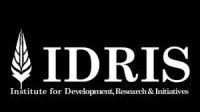Analisis Putusan Hakim Pengadilan Agama Solok Tentang Asal Usul Anak dan Relevansinya dengan Maqashid Syariah
DOI:
https://doi.org/10.58764/j.prwkl.2023.1.38Kata Kunci:
hukum pernikahan, nikah siri, maqshid syariah, sertifikat lahir, hukum keluargaAbstrak
Anak-anak merupakan generasi penerus bangsa yang akan mengubah masa depan peradaban global. Oleh karena itu, penting untuk membicarakan asal usul anak, karena pertalian darah merupakan sumber utama ikatan keluarga, karena merekalah perekat, pengikat yang menyatukan keluarga. Seperti halnya dalam permohonan penetapan asal usul anak yang diajukan ke Pengadilan Agama Solok, dimana sepasang suami istri menjadi penggugat dan meminta majelis hakim untuk menyatakan anaknya sebagai anak sah, namun nyatanya anak tersebut lahir dari hubungan luar, mengawini pemohon dan melangsungkan nikah siri dimana salah satu pihak tetap dianggap menikah secara sah dengan perempuan lain karena tidak ada akta cerai atau cerai pisah. Tujuan penelitian ini adalah untuk menganalisis bagaimana hakim Pengadilan Agama Solok menggunakan pertimbangan hukum dalam menentukan asal usul anak dan relevansinya dengan maqashid syariah. Penelitian ini menggunakan analisis deskriptif dengan pendekatan kualitatif. Berdasarkan hasil penelitian dapat disimpulkan pertimbangan hukum yang digunakan oleh hakim antara lain berdasarkan hukum perkawinan, putusan Mahkamah Konstitusi, hukum Islam dan fatwa Majelis Ulama, serta kaitannya dengan maqasid syariah. penting. berhubungan dengan. erat kaitannya dan selaras dengan konsep ad-Dharuriyyah pada maqashid syariah yaitu perlindungan jiwa dan perlindungan nasab.
Referensi
» click to expand references listAbbas, A. F. (1981). Fikih Dan Perubahan Sosial: Sebuah Studi Tentang Urgensi Pembaharuan Fikih Islam. IAIN Syarif Hidayatullah.
Abbas, A. F. (2010). Metode Penelitian, cet. I. Jakarta: Adelina Bersaudara.
Abbas, A. F. (2015). Faham Agama Dalam Muhammadiyah. Jakarta: UHAMKA Press.
Abbas, A. F. (2016). Aspek-aspek Kemanusiaan dalam Terorisme berdasarkan Kajian Fikih. Islam Realitas: Journal of Islamic & Social Studies, 2(1), 1. https://doi.org/10.30983/islam_realitas.v2i1.106
Abbas, A. F. (2021). Maqashid Al-Syariah dan Maslahah dalam Pengembangan Pemikiran Islam di Muhammadiyah. AL-IMAM: Journal on Islamic Studies, Civilisation and Learning Societies, 2, 29–42.
Abu Zahra, M. (n.d.). Muhadzarat Fi Tarikh Al-Madzahib Al-Fiqhiyah. Kairo: Mathba’ah al-Madani.
Afifi, A. A. (2021). Understanding True Religion as Ethical Knowledge. AL-IMAM: Journal on Islamic Studies, Civilization and Learning Societies, 2, 1–5.
Afifi, A. A. (2022). Women’s Scholarship in Islam And Their Contribution To The Teaching Knowledge. AL-IMAM: Journal on Islamic Studies, Civilization and Learning Societies, 3, 19–25.
Afifi, A. A. (2023). Panduan Penulisan Laporan Ilmiah untuk Publikasi. AL-IMAM: Journal on Islamic Studies, Civilization and Learning Societies, 4, 1–11.
Afifi, A. A., & Abbas, A. F. (2023). Worldview Islam dalam Aktualisasi Moderasi Beragama yang Berkemajuan di Era Disrupsi Digital. AL-IMAM: Journal on Islamic Studies, Civilization and Learning Societies, 4, 23–34.
Al-Attas, M. N. (1997). Islam and the Philosophy of Science. Kazi Publications, Incorporated.
Al-Barry, Z. A., & Nasution, C. (1997). Hukum anak-anak dalam Islam (Ahkamul auladi fil Islam). Jakarta: Bulan Bintang.
Alawi, A. A., & Abbas, A. F. (2002). Fikih sosial: upaya menjembatani Otentisitas Doktrin dengan tradisi dan Realitas sosial. UIN Syarif Hidayatullah.
Arifin, B., & Abbas, A. F. (2007). Masa Lampau Yang Belum Selesai: Percikan Pikiran Tentang Hukum & Pelaksanaan Hukum. Jakarta: O.C. Kaligis & Associates.
Chatib, R. (2017). Putusan MK No. 46 PUU VIII 2010.
Desviana, A. (2019). Penetapan Hakim Tentang Asal usul Anak (Analisis Penetapan Nomor 25/Pdt. P/2015/PA. Bjb dan Nomor 2/Pdt. P/2017/PA. Bjb).
Eliza, M. (2009). Pelanggaran Terhadap UU Perkawinan dan Akibat Hukumnya. Ciputat: Adelina Bersaudara.
Firdaus, Z. (2023). Wawancara Pribadi, Ketua Pengadilan Agama Solok. Pengadilan Agama Solok.
Hanifah, D. A. (2022). Analisis Putusan Pengadilan Agama Siak Sri Indrapura No. 69/ Pdt.P/ 2022/PA.SAK Tentang Asal-Usul Anak. UIN Sultan Syarif Kasim Riau.
Helim, A. (2019). Maqashid Al-Syari’ah Versus Usul al-Fiqh (Konsep Dan Posisinya Dalam Metodologi Hukum Islam). Yogyakarta: Pustaka Pelajar.
Ibn Ashur, M. al-T. (2001). Maqasid al-Shari’ah al-Islamiyyah. Amman, Jordan: Dar al-Nafaes.
Ibrahim, D. (2019). Al-Qawa’id Al-Maqashidiyah (Kaidah-Kaidah Maqashid). Yogyakarta: Ar-Ruzz Media.
Irfan, N. (2017). Anak Di Luar Nikah Paca Putusan Mahkamah Konstitusi Dan Konsep Nasab Dalam Hukum Islam.
Jabbar. (2013). Validitas Maq?sid Al-Khalq: Kajian terhadap Pemikiran al-Ghazz?l?, al-Syatibi dan Ibn Asur. UIN Ar-Raniry.
Mahfudh, S. (1994). Nuansa Fiqih Sosial. Yogyakarta: LKiS.
Mirza Muis. (2018). Analisis Yuridis Terhadap Pertimbangan Hukum Pengadilan Agama Sidoarjo Nomor 280/Pdt.P/2015/PA.Sda Tentang Penolakan Asal Usul Anak Hasil Perkawinan Sirri Tanpa Dihadiri Wali. UIN Sunan Ampel Surabaya.
Pengadilan Agama Solok. (2022). Putusan Pengadilan Agama Solok Nomor 53/Pdt.P/2022/PA.Slk. Solok.
Soimin, S. (2022). Hukum Orang Dan Keluarga Perspektif Hukum Perdata Barat / BW, Hukum Islam Dan Hukum Adat. Jakarta: Sinar Grafika.
Unduhan
-
PDF (English)
views: 411
Diterbitkan
Cara Mengutip
Terbitan
Bagian
Lisensi

Artikel ini berlisensiCreative Commons Attribution-ShareAlike 4.0 International License.
Hak Cipta (c) 2023 Irvan Refliandi, Mona Eliza




